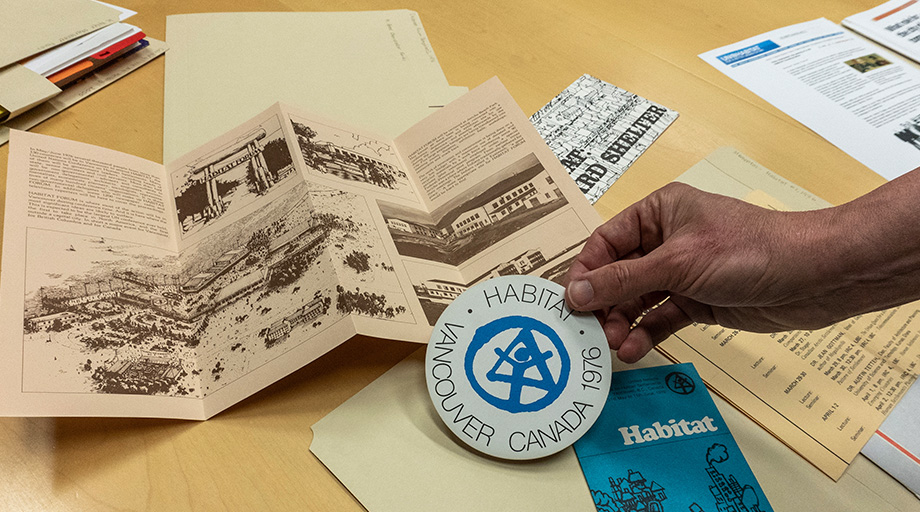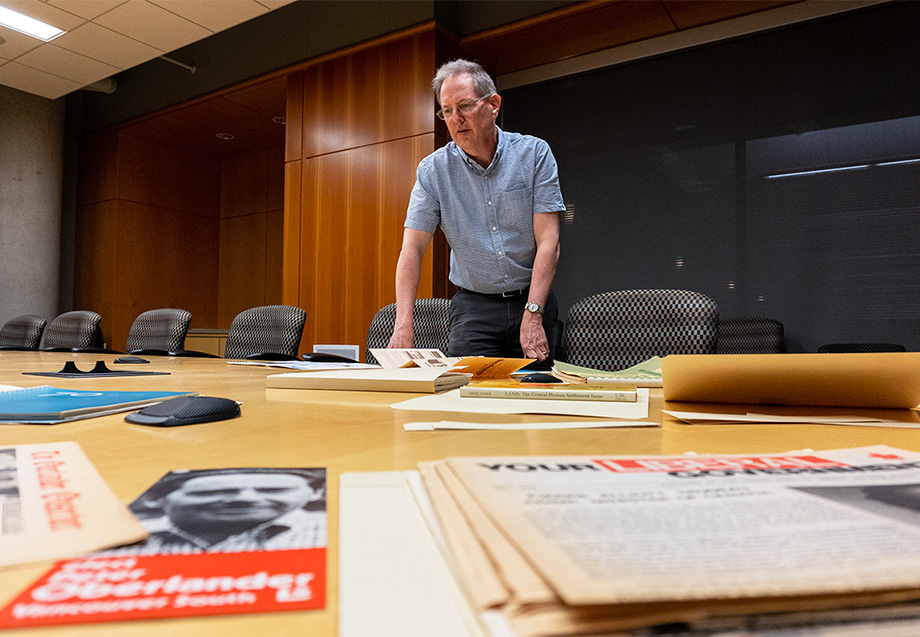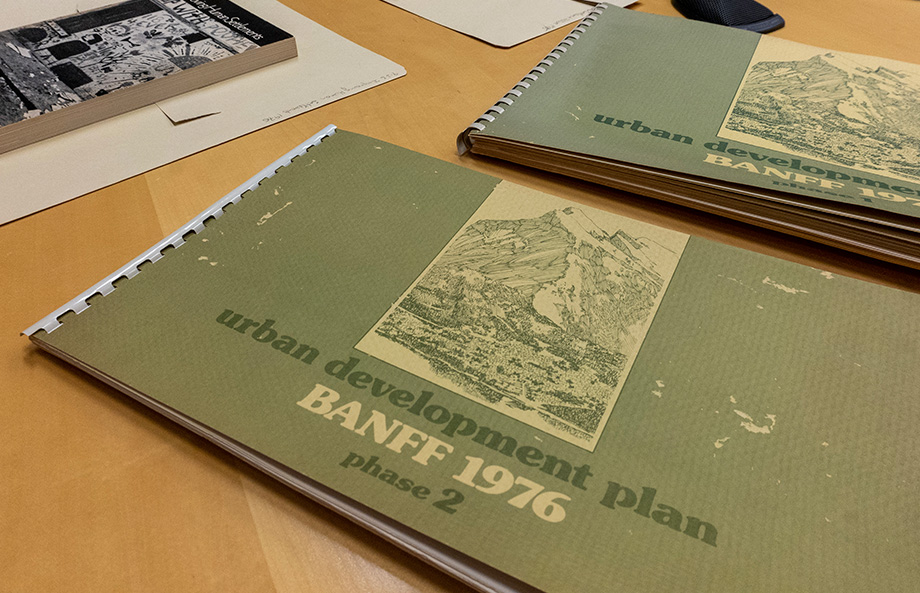
UBC Archives has received the collected archives of Heinz Peter Oberlander (1922-2008), prominent architect and Canada’s first professor of urban and regional planning. The materials in the fonds were donated in several accruals over a period of 12 years, with the last accrual arriving in 2022.
According to the biographic sketch included in UBC Archive’s inventory, Oberlander was born in Vienna, Austria in 1922. Fleeing Nazi-occupied Europe, he emigrated to Canada in 1940. After earning his Bachelor of Architecture from McGill University in Montreal, he moved to the United States to attend Harvard’s Graduate School of Design. Not only was Oberlander the first Canadian to earn a Master of City of Planning from Harvard in 1947, but he also became the first Canadian to obtain a Doctorate in Regional Planning from Harvard in 1957.
Among his many professional achievements, Oberlander is recognized for founding the first School of Community and Regional Planning (SCARP) at UBC.
“He was a long-time teaching faculty member here [at UBC] and was very high profile, very prestigious, not only within the University community, but worldwide,” says Erwin Wodarczak, Interim Head of UBC Archives. “He was an organizer for the original Habitat Conference here in Vancouver.”

Erwin Wodarczak, Acting Head of UBC Archives, viewing selected materials from Peter Oberlander Fonds.
Known as Habitat I, the first United Nations Conference on Human Settlements was held in 1976. That year, Oberlander also created the UBC Centre for Human Settlements, which became as a depository for audio-visual materials from Habitat I. The conference resulted in the publication of the Vancouver Declaration on Human Settlements, and in turn provided the first definition of ‘adequate shelter’ as well as the foundations for the United Nations Human Settlements Programme (UN-Habitat). Oberlander would continue to be heavily involved in Canadian delegations to the UN Commission’s annual meetings, and go on to serve as a senior advisor for the Programme in the 1990s.
While the fonds include plenty of significant materials from the proceedings of Habitat I, it also contains some nostalgic mementos, collected by Oberlander and carefully stored for decades. “The 1976 Habitat Conference documentation includes bumper stickers and little souvenirs that are still in almost perfect condition, just as they were published and distributed,” says Wodarczak.
The fonds is divided into six series, each focusing on a distinct theme such as personal, teaching materials, lectures, conferences and writings, professional life, photographs and audiovisual materials.

One of two copies of the Urban Development Plan Banff 1976 Phase 2 booklet created by Community Planning Consultants Ltd. 1976.
“Oberlander was the inaugural Secretary for the Federal Department of Urban Affairs in the early 1970s, and ran for office politically in the 1974 federal election,” says Wodarczak, pulling out a copy of The Overlander, a newsletter that Oberlander’s team had published for the campaign. The front page features a picture of Oberlander with then-Prime Minister Pierre Trudeau.
Starting in 2010, most of the materials in the fonds were donated by Cornelia Hahn Oberlander. A renowned landscape architect and fellow Member of the Order of Canada, Cornelia married Peter in 1953. After her death in 2022, the last accrual was arranged by Wendy Oberlander, daughter of Peter and Cornelia. In total, more than 70 boxes of materials were donated to UBC Archives. Cornelia’s archives are housed at the Canadian Centre for Architecture in Montreal, Quebec.
When asked who might find this archive particularly useful, in terms of future research, Wodarczak had several suggestions, including anyone interested in the history of urban or community planning: “There will definitely be a lot of materials in this archive that will be of interest to anybody that is interested in the history of urban development, how cities were directed to grow over the last half century, since the Second World War. And anybody interested in the history of planning in Vancouver, from the 1960s onwards—they’ll be looking here for materials. I see several lines of study for people involved in those fields.”
A complete inventory of the archive is available to view on the library website